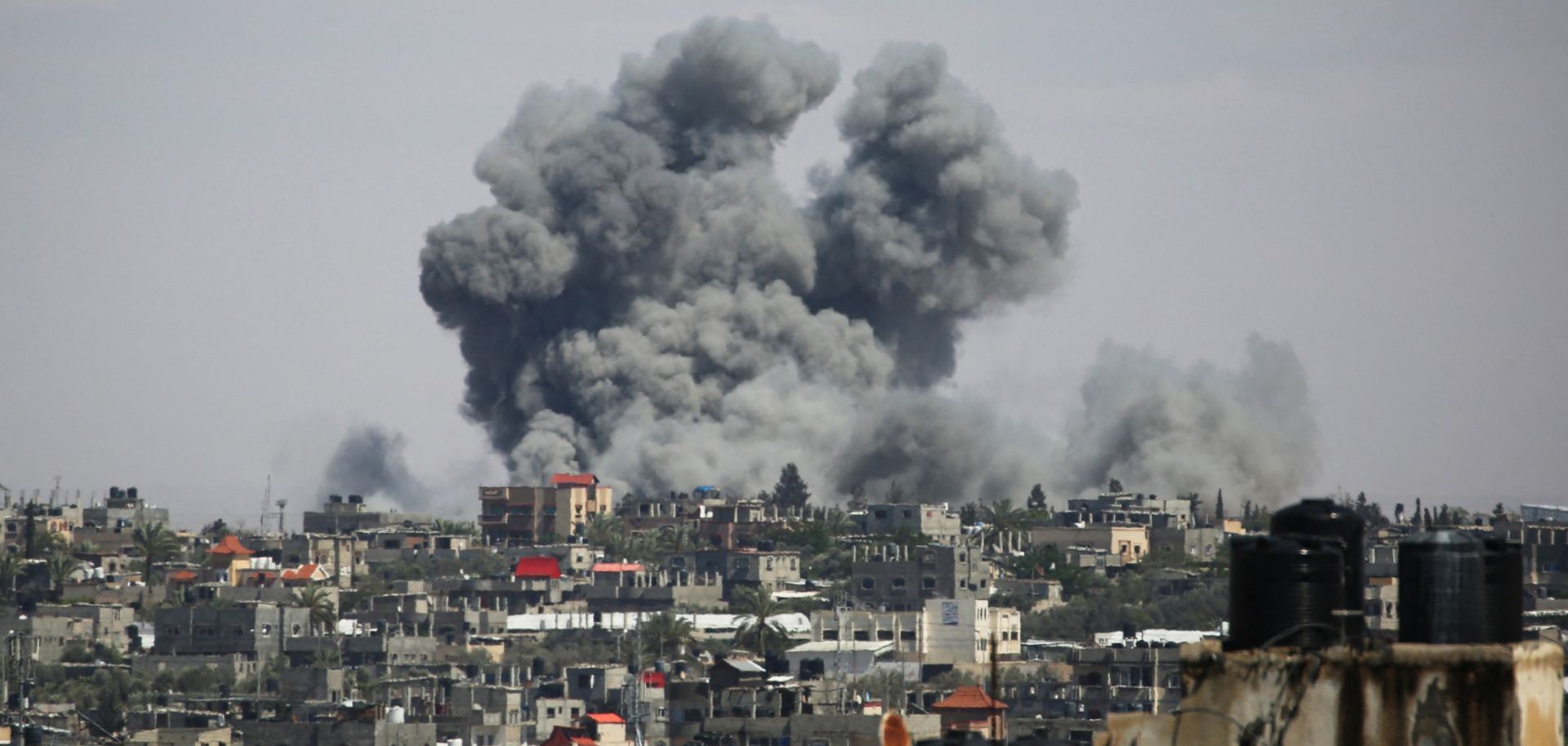On Monday, February 12, Israeli airstrikes killed 67 Palestinians in Rafah and freed two Israeli hostages. Days prior, on Friday night, Israel conducted three raids on residential homes, killing at least 28 people.
These operations follow Israeli Prime Minister Benjamin Netanyahu’s instruction that the Israeli military “prepare a plan to evacuate civilians from the southern Gaza Strip town of Rafah ahead of an expected ground invasion,” despite pushback from the United States. More than 1.4 million Palestinians are currently seeking safety in Rafah, a significant increase from the city’s pre-war population of about 280,000 people.
Regional sources report on the issue:
Al Jazeera outlined yesterday’s strikes on Rafah: “At least 67 people were killed in air raids on the overcrowded city of Rafah, according to a statement from the Hamas-run territory’s Ministry of Health. The predawn strikes on Monday hit 14 houses and three mosques in different parts of the city in the south of the enclave, the Hamas government reported.”
Amid the raids, Israel successfully freed two Israeli-Argentinian hostages. “Louis Norberto Har, 70, and Fernando Marman, 60, who were taken captive from Kibbutz Nir Yitzhak on October 7… were found in good condition,” Haaretz explained. The Israeli news outlet categorized the operations as “a rare achievement, accompanied by considerable political and professional risk-taking by those who approved the operation.”
The Jerusalem Post noted, however, that “Hamas’s armed wing claimed… that three of eight Israeli hostages who were seriously injured following Israeli airstrikes had died from their wounds.” Hamas’s Al Qassam Brigades said via Telegram: “We will postpone announcing the names and photos of the dead for days to come until the fate of the rest of the wounded becomes clear.”
“The Israeli military says 31 hostages have died [during the more than four months of war],” according to Arab News. Despite this, “Prime Minister Benjamin Netanyahu said Monday’s rescue showed that military pressure should continue and he brushed aside international alarm at its plans for a ground assault on Rafah.”
In response to the raids, the Palestinian Ministry of Foreign Affairs stated, as reported by Al Jazeera: “Israel is officially continuing to target civilians and transfer the war to Rafah to push the population to get displaced under bombardment… The recent massacres of the occupation are evidence of the validity of international warnings and fears of catastrophic results of the expansion of the war to Rafah.”
Netanyahu, before Monday’s strikes, had “ordered the evacuation of Rafah, the southern Gaza city on the border with Egypt where an estimated 1.4 million people have been driven by Israel’s military offensive.” Sky News Arabia described the conditions faced by Palestinian refugees in Rafah, who “unable to leave the territory, are living in makeshift tent camps or overflowing UN-run shelters with severe shortages of food and medicine.” Because of this, “the plan for military escalation in Rafah was met with international criticism, including from the US and aid agencies.”
The New Arab similarly highlighted world leaders’ concerns regarding Israel’s strikes on “the densely crowded area with Palestinians left with nowhere safe to go.” U.S. President Joe Biden referred to Israel’s military campaign as “over the top,” and British Foreign Secretary David Cameron called for “an immediate pause in the fighting.” Belgian official Caroline Gennez echoed these fears of a “very, very dangerous” situation in the Gaza Strip.
(Banner Image: AFP via Getty Images)
